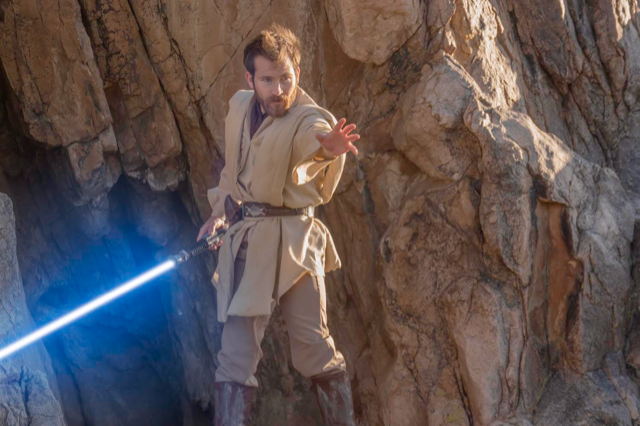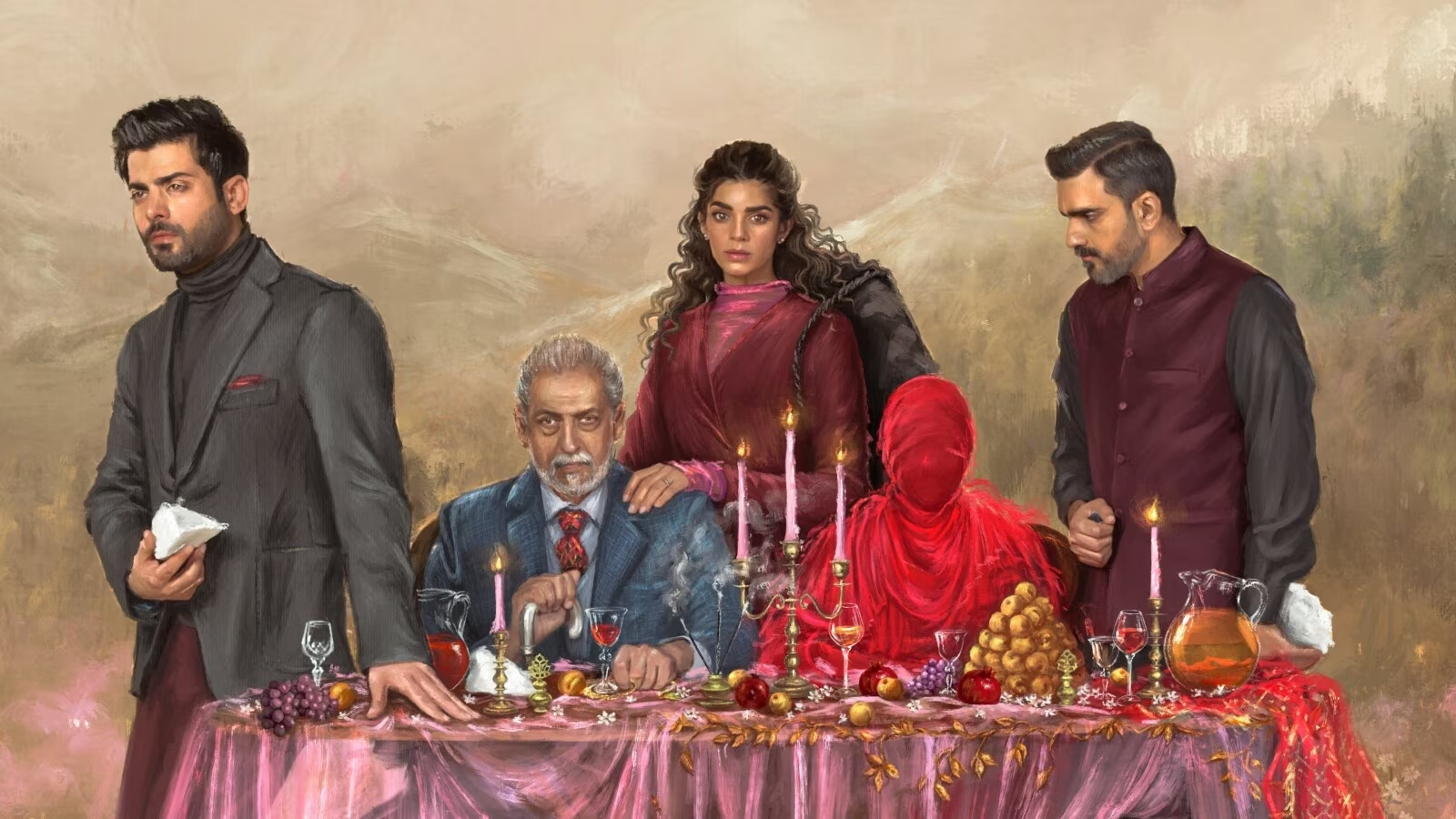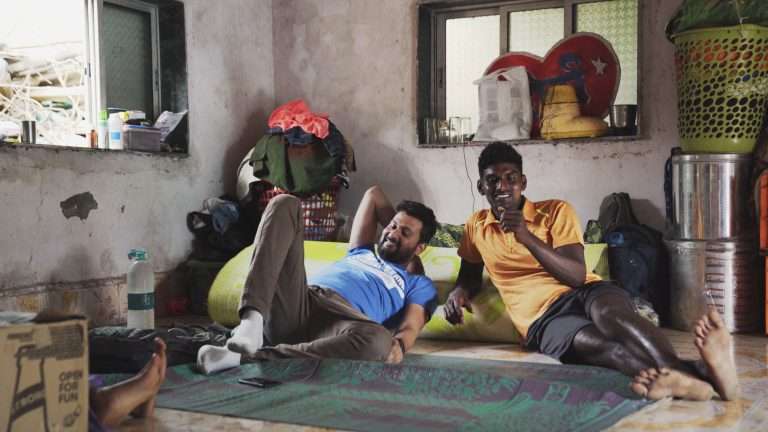After winning the Critics’ Week Audience Award and Cinema & Arts Award at its premiere at the 2024 Venice Film Festival, Jethro Massey’s debut film, “Paul and Paulette Take a Bath,” is releasing in cinemas on September 5th. Ahead of its release, High on Films’ Ollie Wheaton sat down with writer-director Jethro Massey to discuss the making of the film, its exploration of the macabre, the ignored crimes of history, and the inspirations for such a project.
Ollie Wheaton: Hello, thank you for spending some time with me today, and congratulations on the success Paul and Paulette have enjoyed so far, and will hopefully continue to enjoy. I wanted to start with a question about the assembling of the crew, because for a film, it’s a very unique vision, a platonic rom-com about the darker sides of humanity. So I was wondering how you went about assembling a crew that would be able to help you realise this quite interesting vision, but then would also enhance this vision by bringing their own ideas into the mix?
Jethro Massey: The first thing to say is it’s a self-produced film, and so it was very much a small, ramshackle team of people who were foolish enough to follow me into this adventure. I’ve been working in Paris for 20-odd years organising shoots for other people, as well as doing my own short films and music videos. So I had a few collaborators that I really wanted to work with, that I’ve worked with before, like the cinematographers, Isarr Eriksson and Marius Dahl.
I remember roping Isarr into it by saying, We’re going on a road trip to do some location scouting in Munich. So that was the first bit of the process. I knew if I got him on the road for four days in an old car that I would manage to bring him into it. And that was it. The truth is, I really use the same networks that I’ve used for short films in the past. The equivalents of Mandy in the UK that exist in France, those sorts of websites.
And I leaned on my network and asked people, friends of friends, some of the crew I had worked with before, a costume designer who comes from the cabaret world, people that I’ve worked with a lot for some of my music videos. The production manager is actually a concert violinist and a jazz violinist. He’d never done it before. But he’d organised orchestras before, so he knew about organising people. So it was a mix. For most people, it was their first experience of a feature film, myself included.
But what I knew going into it was that everything we put in front of the camera is what counts. So, as long as the costumes are good and the actors are right for Paul and Paulette, and can carry a feature film, it should work. I know the ins and outs of getting locations in Paris quite well from my other work. One of the things I really value when working with Issar is how he pushes me on locations. I’ll suggest something, and he’ll look at it and say, ‘I think you can do better.’ And those are the crew members that I love that are pushing me to do better work. Hopefully, I’m doing that as a director and pushing them to do their best work.
They’re also challenging me to find the perfect apartment for Paul and another just right for Paulette. So that’s really it. And then the most important thing I said earlier is casting. I really took the time; it was the one thing I said to myself, I can make this film, but I can only make this film if I find the right Paul and Paulette. And the advantage of doing a self-produced film is that I didn’t have the constraints of financiers saying, ‘Well, you need this name or this name.’ I could really just cast the two people who were right for it. There are so many talented actors around. I took the time. And when I saw Marie Benati, who plays Paulette, and Jérémie Galiana, who plays Paul, when I saw them in a chemistry test together, I knew I’d found the right people for the film.

Ollie Wheaton: So was it that instant, that’s Paul and Paulette, I can see it straight away?
Jethro Massey: Yeah, I mean, I don’t want to go too much into detail, but there were two really strong people for Paulette. And Paul, I was casting in the UK. But I’d done the rounds of every actor in France on all the acting websites, who’d said they were perfectly bilingual, and they spoke without an accent. There are a lot of them who say they are, and as a Brit, you sort of go, oh, yeah, no, no, no, you speak English very well, but there’s definitely something that is not quite right. But Jérémie was the one that I found, and I found a showreel. And he’s French American.
He was the one person out of all of the actors and all the agents’ websites in France, I found, whom I thought, ‘Oh, he could be Paul.’ I sent him the script, and it took him two months to get back to me. We’re about to finish casting. I was bringing four or five very talented actors over from the UK to do these chemistry tests. And Jérémie wrote me a message a week before saying, ‘I’ve just read the script.
I think it’s great. Is casting still open?’
So I said, Okay. And then we had a coffee the next morning. I sat next to him. I thought, oh, God, he’s going to be really good. And so I rejigged the whole schedule and fit him in for the casting sessions. Then, when we did those casting sessions, I knew I had the right person. We had to move the schedule so we could make it work for Jérémie and Marie, but it was really worth doing. The nightmare scenario of having to move the shoot up a week, but we managed to pull it all together.
Ollie Wheaton: Going back to something else you mentioned is that you talk about your specific knowledge of Paris, and I found that watching the film, it felt very personal with specific, intimate knowledge of the city. So could you talk a bit about how that helped inform not only how you wrote the script, but how you made the film?
Jethro Massey: Looking back, I realize it’s really been my own journey with the city of Paris. When I first arrived, I had just finished reading George Orwell’s “Down and Out in Paris and London.” I had these sorts of romantic dreams of the city where poets and filmmakers used to go. And it really is one of the things I still love about that city is it draws; there are a lot of artists who go there because of its history.
But as you spend time there, especially when you’ve got a bit of a morbid curiosity like me, you start uncovering some of those darker corners, and you think, all these people here with their pain au chocolat and looking at the Eiffel Tower, they don’t know what happened on the street that they’re walking on. And that fascinated me, how, when you learn the story, the feeling of being there changes.
And the more you think about it, the more that history fills you up. That was really at the heart of the film—the question of how a space changes once you know its history. You say, ‘This person lived here, this happened here,’ and I’m fascinated by how we can then walk through a museum, nod, and simply think, ‘Yes, that was important.’ But is that really empathy, you know? How far do we have to go to really understand these historical crimes?
So there was all that there. And then there was the act of bringing the crew to those locations to film. Of course, as a filmmaker, you’re convinced that the feeling of the place is going to feed the film and work its way into the fabric of the film. I don’t know if that’s true. But I know everybody does get a sensation being there. And I think it must do in some way. Funny enough, the biggest reaction we got was from Jérémie in the apartment we visited at the end. I won’t say exactly what it is, but it’s a very recent crime.
It was a decrepit, decaying apartment—nothing like the grand historical sites, the guillotine, or the human zoo. You can sense the weight of those places, but this apartment carried its own undeniable atmosphere. It wasn’t the real place, but you could see the traces of old picture frames on the wall and the carpet. And there was something very dingy and awful about the space. The second we were filming, you can really feel it come through. So some of it is the story we tell ourselves about a place. Part of what we do in making films is tell stories, immersing the audience in those emotions. What’s always fascinated me is where that line really lies.
Ollie Wheaton: Obviously, we won’t go into spoilers, but the film does explore some quite horrific events from across the centuries, but obviously, some are still quite recent. Especially when filming some of the events related to the more recent tragedies, what was the atmosphere like on set? And what were the measures you were putting in place to make sure everyone was comfortable with what was going to happen and what you had to do?
Jethro Massey: That’s a good question. I mean, it was the idea of the film that we’d start further away in history and then come closer and closer to today. And at some point, for the audience, Paul and Paulette would be crossing a line, but it might be different for every person where that line is. When you make a film, you’re looking to create an atmosphere. I think the toughest day for Jérémie was in that apartment of the most recent crime, it’s a scene at the end of the film.
Not only was he exposing himself emotionally, but he was also barely wearing any clothes. And it’s a 10-minute scene. He spent two days in that state, in that place. You take precautions—checking in with your actors, your crew, your cast. But I think it weighs heaviest on the actors, because their task is to fully immerse themselves in the emotional reality of the place.
For the rest of the crew, the gaffer and the cinematographer, they’re moving cameras around and lights, and they’re seeing things in a very different way, trying to evoke something just within that little screen. Big screen, hopefully when it comes out. But yeah, I think the heaviest is for the actors. We had great actors, and we checked in with them. And Jérémie let us know on that scene when it was getting a bit heavy. Just thinking about staying in a state of tears or borderline tears all day is a real heavy thing to carry on your shoulders.
Ollie Wheaton: Yeah, I mean, his acting in that scene is phenomenal. He knocks that out of the park. On a similar line, the film has this arc where you start further back in time, then move forward through these events. I was wondering what drew you to explore the ones that feature in the film in particular? Were there any ones that you wanted to include, but then you couldn’t find a place to put them?

Jethro Massey: Yes, there were quite a few. The bathtub in the title of the film is the first one that I knew they were going to end up there. That’s sort of maybe the midpoint of the film. And then the very first image that came to me was Paulette walking down Place de la Concorde, taking five steps, getting on her knees and bowing her head, trying to imagine the execution of Marie Antoinette, the guillotine. So from there, I worked my way through. And I had a long list of sites I wanted to explore and imagine what scenes I could do there. There was one in particular, I remember that there was definitely a scene where I had Paul walking past Notre Dame, imagining being the hunchback. But that was anchored in fiction, so I didn’t go with that.
The Vélodrome de Paris was something that I wanted to touch on, which is where Maurice Papon, who does get his mention in the film, was responsible for rounding up all of the Jews in Paris and putting them on trains. They were kept in this place called the Vélodrome. The scene didn’t make it into the film because I couldn’t find the right thing for them to do there. But there is a moment I did manage to just keep it in.
There’s a moment that some people will notice and some won’t, where Paul and another character called Valérie just walk down the street towards the end of the film, and you see the plaque. They walk past it and don’t notice it. And you see the plaque where the Jews were rounded up by the French authorities, and kept in awful conditions until they were put on the trains. I’m sure there were some other earlier ones, but I think those are the important ones.
There was also a section in the Human Zoo we ended up cutting in the edit, about the Tirailleurs Sénégalais—African soldiers who were brought into the French army, fought for France, returned home, and were then denied their pay. They were supposed to be paid like any other French soldiers, and they refused to pay them at all. And they protested in Sénégal, and the French authorities opened fire on them, and killed hundreds of them, I think.
But sometimes, while writing or editing, you realize that it’s not the character speaking—it’s you trying to make a point. There were moments when I had to let the characters lead the journey. That’s often why certain things ended up being cut: if it felt like I was imposing too much on the story, it simply couldn’t stay.
Ollie Wheaton: Speaking of working on the story and the film as a whole, now that you’ve been through the process of making a feature film, if you could go back to the beginning and speak to your younger self before this journey, what advice would you give him? Were there any hurdles you didn’t think would pop up that ended up becoming major issues?
Jethro Massey: No, I think the biggest thing is, I went into it making a film and just getting to the end. Well, first off, you reach the end of the shoot, and you think, ‘Okay, I made it,’ then you’ve got to do the post-production. That’s a whole other challenge. What I didn’t really think about until we were halfway through post-production was how actually to get the film seen. I had a lot to learn—about film markets, about getting a movie into a major festival. Without big stars and with a self-produced, low-budget film, it’s incredibly difficult to get noticed. The only way forward is often a premiere at a major festival—Cannes, Berlin, Venice, Toronto, or Sundance. I realized I wasn’t quite prepared for that.
Ollie Wheaton: I’m just being conscious of time; I might need to wrap this up with one last question. At High on Films, whenever we interview someone, we end by asking them about their five favourite films. So ones that you believe might be like the peaks, the high points, of cinema. So what would those films be for you?
Jethro Massey: “Harold and Maude,” that’s an easy one. “Brazil” is another one. “Jeux Interdits,” I think it’s called “Forbidden Games” in English, is a film I used to watch as a kid over and over on VHS tape. And it has some links with “Paul and Paulette.” “Jules et Jim” is a film that I’ve always loved. I’ve given you four, haven’t I? Yes, I think so. Oh, gosh.
Ollie Wheaton: Feel free to list as many honourable mentions as you want.
Jethro Massey: “One Flew Over the Cuckoo’s Nest” and “Les Enfants du Paradis.” What else do I always come back to? No, that’s good. Oh, and I’m big on “The Big Chill” at the moment.
Ollie Wheaton: Thank you. Thank you very much for your time today.


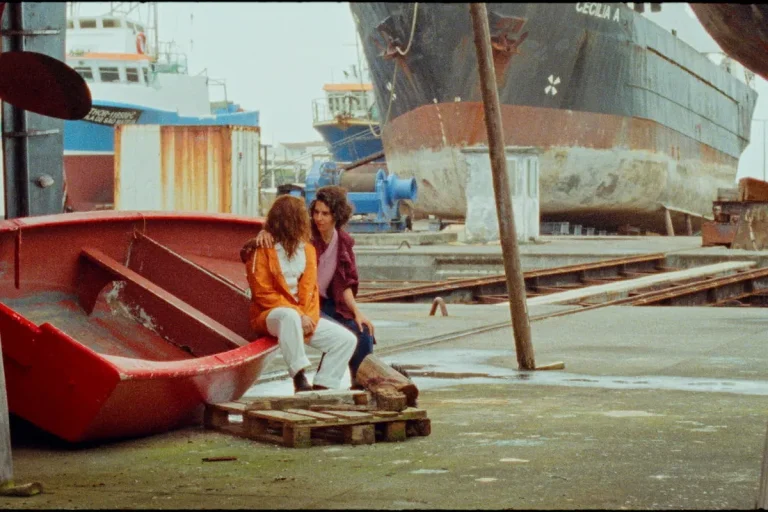
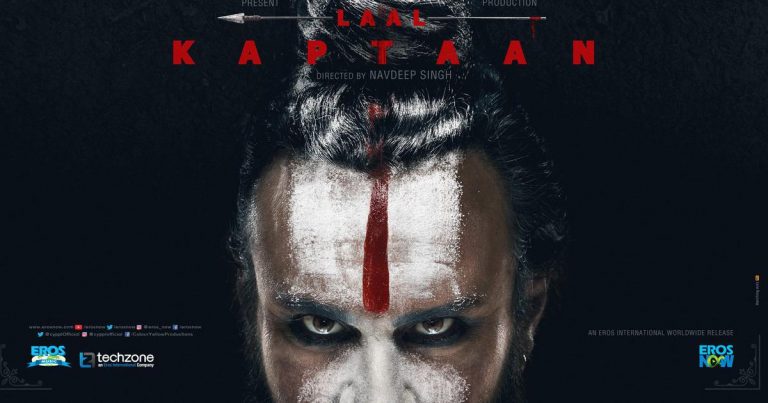
![A Tale of Two Sisters [2003] Review: Every Family Has Its Dark Secrets](https://79468c92.delivery.rocketcdn.me/wp-content/uploads/2018/09/a-tale-of-two-sisters-768x432.jpg)
